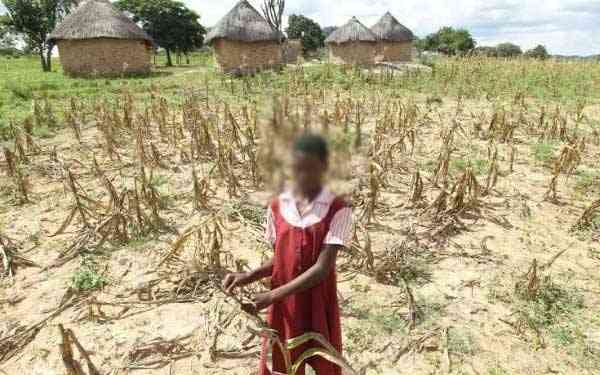
ZIMBABWE is one of the African countries bearing the brunt of climate change-induced natural disasters.
In March 2019, the country’s eastern part was devastated by tropical Cyclone Idai.
Cyclone Idai left more than 270 000 people counting their losses.
The storm and subsequent flooding and landslides left 340 people dead and many others missing.
Agriculture, schools and other infrastructure all suffered heavy impacts; some have not recovered since then, all because of climate change.
Climate change is a major threat to food production, is displacing people and increasing the risks to health challenges globally.
Climate change is a mammoth problem; addressing it is complex, it requires vast resources, including financial investment to decarbonise economies and produce food sustainably.
To make matters worse, it requires international co-operation and commitment, which can be difficult to obtain.
- New dispensation has redefined avaricious culture of its predecessor
- Why Zim must prioritise climate change fight
Keep Reading
Climate change overshadowed
A snap survey would reveal that many Zimbabweans, among them policymakers, believe that climate change is not the country’s main problem.
They opine that drug abuse, unemployment, poverty, inequality, inflation, gender-based violence, among others are some of the major socio-economic problems the country is facing.
Zimbabweans generally regard these as the most urgent issues warranting immediate attention.
Efforts to fight these problems often tend to overshadow climate change efforts. This is where the problem lies.
Wrong diagnosis
Wrong diagnosis of the root of Zimbabwe’s problems is leading to wrong prescriptions.
A critical analysis of all these problems will reveal that they have their roots in climate change.
No doubt. The point is that climate change is the root of all Zimbabwe problems — forget about politics.
If humanity managed to solve the climate change conundrum, it would have solved more than half of its problems.
Poverty
The impacts of climate change are felt more severely by people living in poverty, who are in the majority globally.
This is the case because they depend on natural resources and agriculture for their survival, and they have limited capacity to cope with the extremes brought about by climate change.
According to the World Bank, climate change threatens to condemn 130 million people to poverty over the next 10 years.
Gender-based violence
In Zimbabwe, about 40% of women aged between 15 and 49 have experienced physical and/or sexual violence perpetrated by an intimate partner.
Cases of gender-based violence increased during the COVID-19-induced lockdown because isolation made it harder for victims to escape.
Research indicates that drought increases stress in communities and is leading to conservative patriarchal practices such as son preference, differential feeding, child marriage and intimate partner violence.
Moreso, during times of scarcity caused by weather-related incidents, women and girls are more likely to be forced into sexual exploitation in exchange for goods or services and walk increasingly longer distances to fetch potable water and food, making them vulnerable to sexual abuse.
Similarly, when families are unable to meet basic needs, the risk of child marriage significantly increases.
HIV and Aids
Even though Zimbabwe has made significant strides in the fight against HIV and Aids, HIV prevalence is still high at 12,9%.
The climate emergency is likely to generate serious health consequences worldwide in the coming decades.
Besides competing for Treasury support, climate change will lead to income loss, food insecurity and migration.
Many climate migrants will be experiencing income loss and food insecurity and will be more vulnerable to transactional sex, sexual violence and exploitation.
Migration can also reduce people’s access to HIV and sexual and reproductive health services, including antiretroviral therapy.
All these problems are linked to climate change one way or the other — unemployment, poverty, inflation and drug abuse, among others.
In recent years, the Zimbabwean government adopted green budgeting (using tools of budgetary policymaking to help achieve climate and environmental goals), this is evidenced by several green projects being undertaken countrywide.
This is an important step towards treating climate change as a national priority.
However, at present other socioeconomic challenges plaguing the country are at the centre of government’s national spending. This is understandable, but this has dire implications.
Implications
Understandably, economic, social and health competing interests currently overshadow environmental interests in many countries, including Zimbabwe.
This is justifiable at present, but many of these issues will be exacerbated by climate change in the future, adding more challenges to the country’s development prospects.
Certainly, climate change is likely to scuttle Zimbabwe’s efforts to attain an upper-middle-class economy by 2030.
It poses a risk to current and future endeavours to protect livelihoods, grow the economy and prevent, and fight diseases and loss of life.
It is, therefore, in our best interest to prioritise climate issues.
Measures to mitigate against climate change have a trickle-down effect on unemployment, gender-based violence, inequality and poverty, among others.
Zimbabwe is for us all; it is everyone’s responsibility to make it habitable.
Cliff Chiduku is a communications, public policy and governance expert with interests in agriculture and environmental issues. He writes in his personal capacity. Feedback: [email protected] or Call/App +263775716517.







